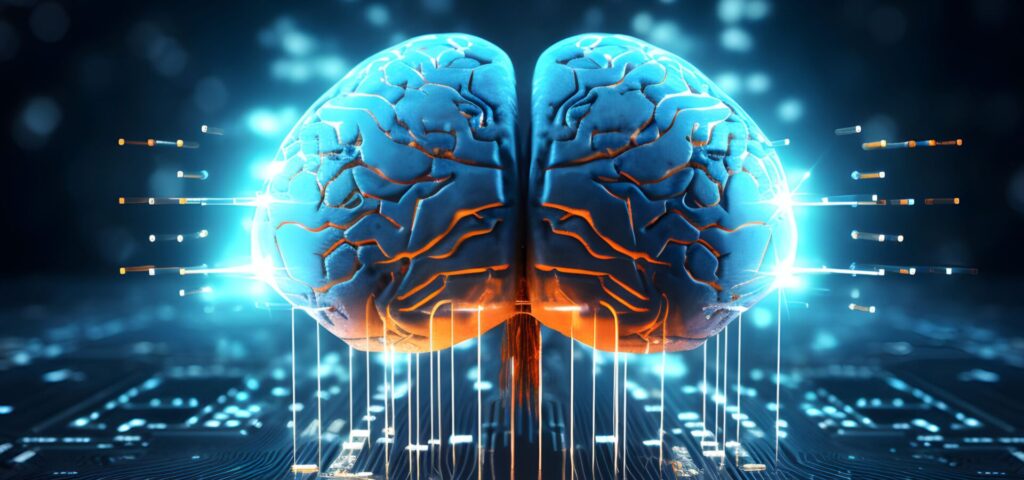Artificial Intelligence (AI) has rapidly evolved from science fiction into an essential component of our daily lives. From voice-activated virtual assistants to complex algorithms that enhance medical diagnostics, AI continues to shape modern society in profound ways. This article explores AI’s foundational principles, its applications across industries, and the impact it has on our future.
Understanding Artificial Intelligence
At its core, artificial intelligence is the capability of a machine to perform tasks that typically require human intelligence. These tasks include learning, problem-solving, pattern recognition, decision-making, and language understanding. AI systems range from narrow AI, which performs specific tasks (like speech recognition in smartphones), to general AI, which can understand, learn, and apply knowledge across various fields (though general AI remains largely theoretical at this point).
AI operates through various techniques such as machine learning (ML), deep learning (DL), and natural language processing (NLP). Machine learning allows systems to learn from data and improve without explicit programming, while deep learning utilizes neural networks inspired by the human brain to analyze complex patterns. NLP enables machines to interpret, process, and generate human language, opening doors to innovations like chatbots and translation services.
Key Components of AI
AI technology is built on several essential components, which work together to mimic cognitive processes:
- Data Collection: AI systems rely on vast amounts of data to recognize patterns and improve their accuracy. Data collection fuels machine learning algorithms, allowing systems to “learn” from real-world scenarios.
- Algorithms and Models: Algorithms are mathematical formulas or set instructions that guide how AI processes data. Models are specific implementations of these algorithms, crafted to address particular problems. For instance, recommendation engines on streaming platforms are powered by algorithms analyzing user preferences to suggest new content.
- Neural Networks: Inspired by the human brain, neural networks are systems of interconnected nodes or “neurons” that process data. Each layer of neurons refines the data, making it possible to analyze complex information, like images and languages, through successive processing stages.
- Training and Feedback: Training is a crucial part of AI. Algorithms are fed large datasets and undergo training sessions where errors are identified and corrected. This feedback loop ensures that the AI model becomes more accurate with each iteration.
Applications of AI Across Industries
AI has revolutionized industries by automating tasks, enhancing efficiency, and unlocking new levels of personalization. Some prominent applications include:
- Healthcare: AI assists in diagnostics by analyzing medical images and identifying patterns indicative of diseases. It also enables personalized treatment plans based on patient data and predictive analytics, potentially improving patient outcomes.
- Finance: In the financial sector, AI systems detect fraudulent activities by analyzing transactions for unusual patterns. They also assist in credit scoring and loan approvals, helping to make quicker, data-driven decisions.
- E-commerce: AI has reshaped online shopping experiences through personalized recommendations, dynamic pricing, and improved customer service via chatbots. Additionally, AI-powered inventory management optimizes stock levels and reduces operational costs.
- Education: AI has introduced adaptive learning platforms that adjust to individual student needs, providing customized learning experiences. These platforms identify a learner’s strengths and weaknesses, offering targeted support and optimizing educational outcomes.
- Transportation: Autonomous vehicles, though still in development, rely on AI to process sensor data and make real-time decisions. In logistics, AI optimizes routes and improves delivery efficiency by analyzing traffic patterns and weather conditions.
Ethical Considerations and Challenges
While AI offers transformative potential, it also raises ethical concerns. Issues around data privacy, job displacement, bias in AI algorithms, and decision accountability have sparked debates globally. As AI systems learn from historical data, biases in these data sets can lead to biased outcomes. Ensuring AI transparency, fairness, and accountability is crucial for building trust in this technology.
Another concern is the replacement of human jobs. While AI automates repetitive tasks and boosts productivity, it may lead to job displacement in certain sectors. Addressing these shifts will require strategic workforce planning, including re-skilling and up-skilling programs to help individuals adapt to changing job requirements.
The Future of AI
The future of AI promises greater advancements, especially with research focusing on creating general AI systems capable of more complex reasoning and decision-making across various domains. Potential areas of growth include:
- Enhanced Personalization: AI could create highly personalized products, content, and services based on detailed analysis of user behavior.
- Improved Human-Machine Collaboration: The integration of AI into various devices and systems will foster collaboration between humans and machines, enhancing productivity across industries.
- Breakthroughs in Healthcare: As AI continues to analyze medical data, it could lead to new discoveries in drug development, gene therapy, and disease prevention.
Conclusion
Artificial intelligence is reshaping our world, providing solutions that enhance productivity, streamline operations, and address some of society’s most pressing challenges. As AI continues to evolve, its impact on industries and our daily lives will only grow, making it an indispensable tool for future innovation. For those looking to leverage AI in building a digital presence, platforms like WebsiteBuilder.ai make it simple to create personalized, AI-driven websites that cater to unique business needs. With such tools, even those new to AI can unlock its potential and bring their ideas to life online.
